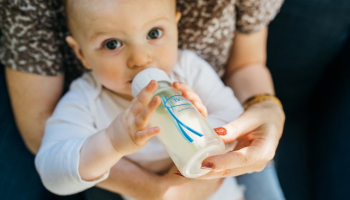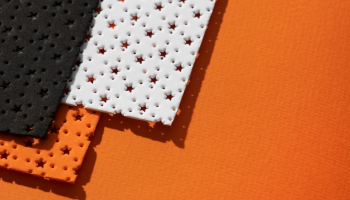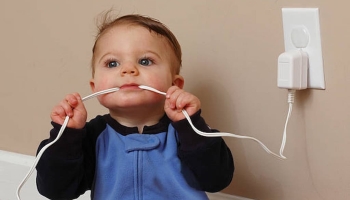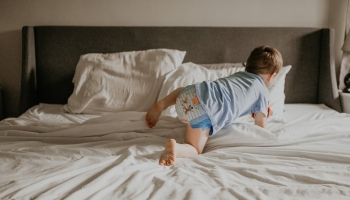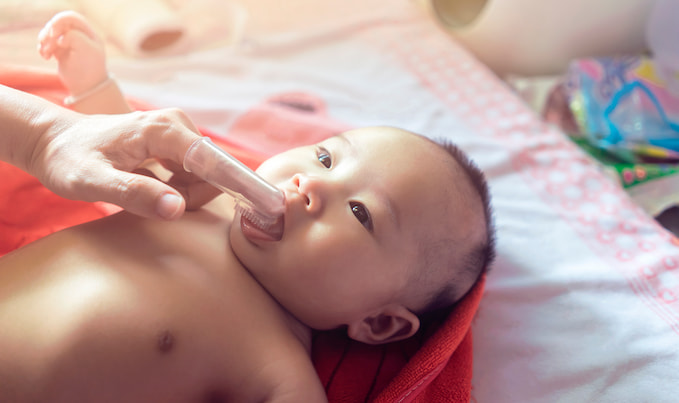
Cleaning a newborn’s tongue is an essential part of their daily oral hygiene routine. It is a simple process that can prevent the buildup of harmful bacteria in the mouth. However, many new parents are unsure of how to properly clean their newborn’s tongue.
First and foremost, it is important to understand why cleaning a newborn’s tongue is necessary. A newborn’s mouth is a breeding ground for bacteria due to the milk and formula that they consume. This bacteria can lead to oral thrush, a common fungal infection in newborns. By cleaning their newborn tongue often, parents can help prevent the buildup of harmful bacteria and reduce the risk of infection.
There are several methods for cleaning a newborn’s tongue, including using a soft, damp cloth or a tongue cleaner specifically designed for infants. It is important to be gentle and avoid using too much pressure, as a newborn’s tongue is delicate. By incorporating tongue cleaning into their daily routine, parents can help ensure their newborn’s oral health and overall wellbeing.
Understanding the Importance of Oral Hygiene in Newborns
Oral hygiene is essential for overall health, and it is equally important for newborns as it is for adults. Maintaining proper oral hygiene in newborns can prevent various health problems such as tooth decay, gum disease, and bad breath.
Babies are born with a clean and healthy mouth first, but bacteria can quickly accumulate on the tongue and gums. This bacteria can cause infections and other health issues. Therefore, it is necessary to clean a newborn’s tongue regularly to remove any bacteria or debris that might have accumulated.
Newborns’ oral health is also essential for their overall well-being. Poor oral health can lead to problems with feeding and sleeping, which can affect the baby’s growth and development.
Parents must start practicing good oral hygiene habits for their newborns from the very beginning. This includes regular cleaning of the tongue, gums, and teeth, as well as scheduling regular appointments with a pediatric dentist.
When and Why to Clean Your Newborn’s Tongue

Cleaning a newborn’s tongue is an essential part of their daily routine. It is important to start this habit early on to ensure that your baby’s mouth stays healthy. A baby’s tongue can accumulate bacteria and milk residue, which can cause bad breath and other oral health issues if not cleaned regularly.
Newborns do not have teeth yet, but their tongues can still develop a white coating, which is called thrush. Thrush is a fungal infection that can cause discomfort and pain in the baby’s mouth. Cleaning the tongue can help prevent the development of thrush and other oral health problems.
It is recommended to clean your baby’s tongue once a day, preferably after feeding. You can use a clean, damp cloth or gauze to gently wipe your baby’s tongue. Be sure to use a fresh cloth or gauze each time to avoid spreading bacteria.
Cleaning your baby’s tongue can also help establish good oral hygiene habits from an early age. It is important to make tongue cleaning a part of your baby’s daily routine to ensure that they continue to practice good oral hygiene as they grow older.
Preparing for the Cleaning Process
Before cleaning a newborn’s tongue, it is essential to prepare for the process. The following are some steps to follow to ensure that the cleaning tongue scraping process is safe and effective:
- Wash your hands thoroughly with soap and warm water to prevent the transfer of germs to your baby’s mouth.
- Choose a clean and soft gauze or washcloth to use for cleaning your baby’s tongue. It is essential to avoid using materials that are rough or abrasive, as they may irritate the baby’s tongue.
- Wet the gauze or washcloth with warm water. It is essential to ensure that the water is not too hot as it may burn your baby’s tongue.
- If you prefer to use a finger brush or tongue cleaner, ensure that it is clean and soft to avoid injuring the baby’s tongue.
- Position your baby comfortably and securely, either in your lap or on a changing table. It is essential to ensure that your baby’s head is supported to prevent choking.
- Gently open your baby’s mouth and use the gauze or washcloth to clean the tongue. Start from the back of the tongue and move forward, using gentle circular motions. Avoid scrubbing the tongue aggressively, as it may cause bleeding or discomfort.
- Rinse the gauze or washcloth with warm water and repeat the cleaning process until the tongue is clean.
- After cleaning, wipe your baby’s mouth with a clean and dry cloth to remove any excess moisture.
By following these steps, you can ensure that the cleaning process is safe and effective for your newborn.
Step by Step Instructions to Clean Newborn’s Tongue
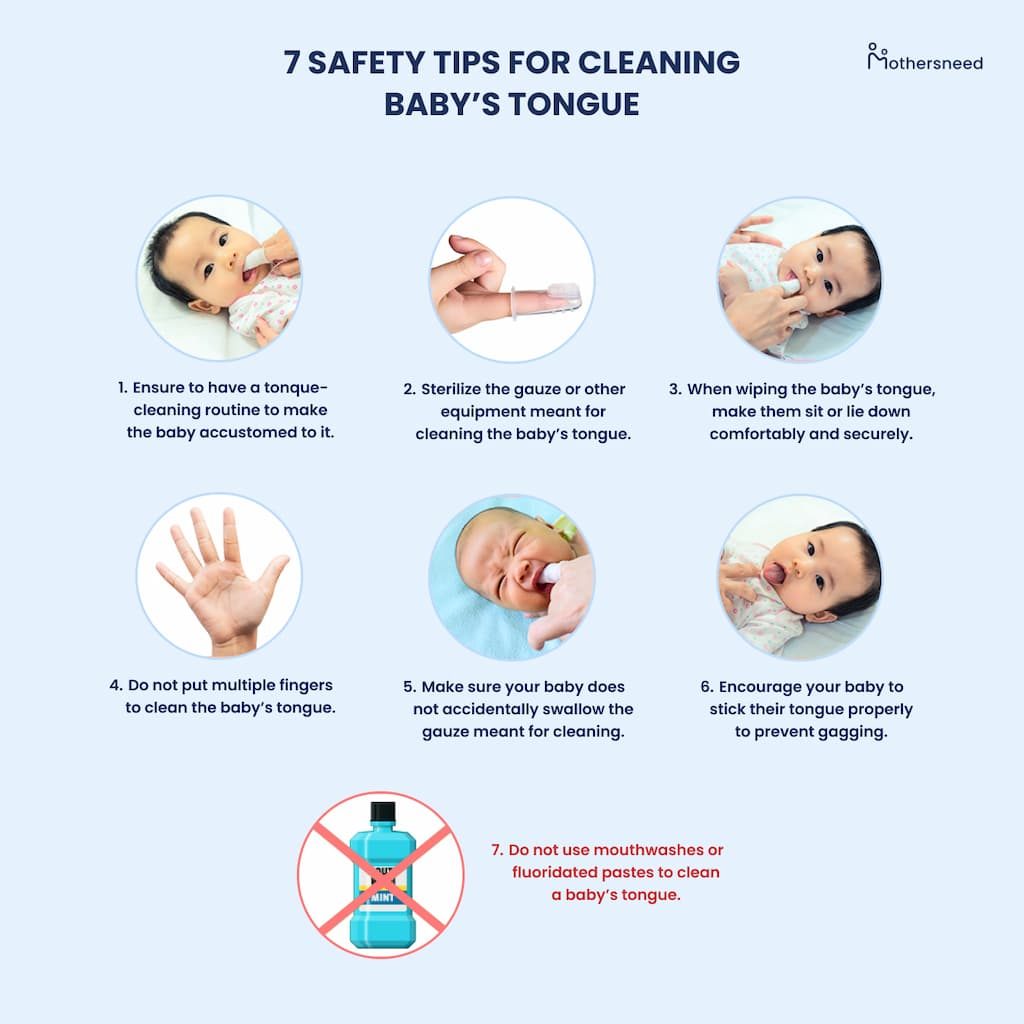
Cleaning a newborn’s tongue is an essential part of maintaining good oral hygiene for the baby. Here are some step-by-step instructions to help parents or caregivers clean a newborn’s tongue:
- Start by washing your hands thoroughly with soap and water. This step is crucial to prevent the transfer of any harmful bacteria to the baby’s mouth.
- Place the baby in your lap, facing away from you. Make sure the baby is comfortable and relaxed.
- Use a clean, damp washcloth or gauze pad to clean the baby’s tongue. Wrap the cloth or pad around your index finger and moisten it with warm water.
- Gently rub the baby’s tongue in a circular motion, starting from the back of the tongue and working your way forward. Be careful not to apply too much pressure, as this can cause discomfort or injury to the baby’s mouth.
- After cleaning the tongue, use the same cloth or pad to clean the baby’s gums and cheeks. Again, use a gentle circular motion to clean the entire mouth.
- Rinse the cloth or pad with warm water and repeat the process as necessary until the baby’s mouth is clean.
- After cleaning, wipe the baby’s mouth with a clean, dry cloth to remove any excess moisture.
It is important to note that cleaning a newborn’s tongue should be done with care and patience. It may take some practice to develop the necessary hand coordination and technique, but with time, it will become easier and more natural. By following these step-by-step instructions, parents or caregivers can help ensure that their newborn’s mouth stays clean and healthy.
Identifying and Handling Oral Issues in Newborns
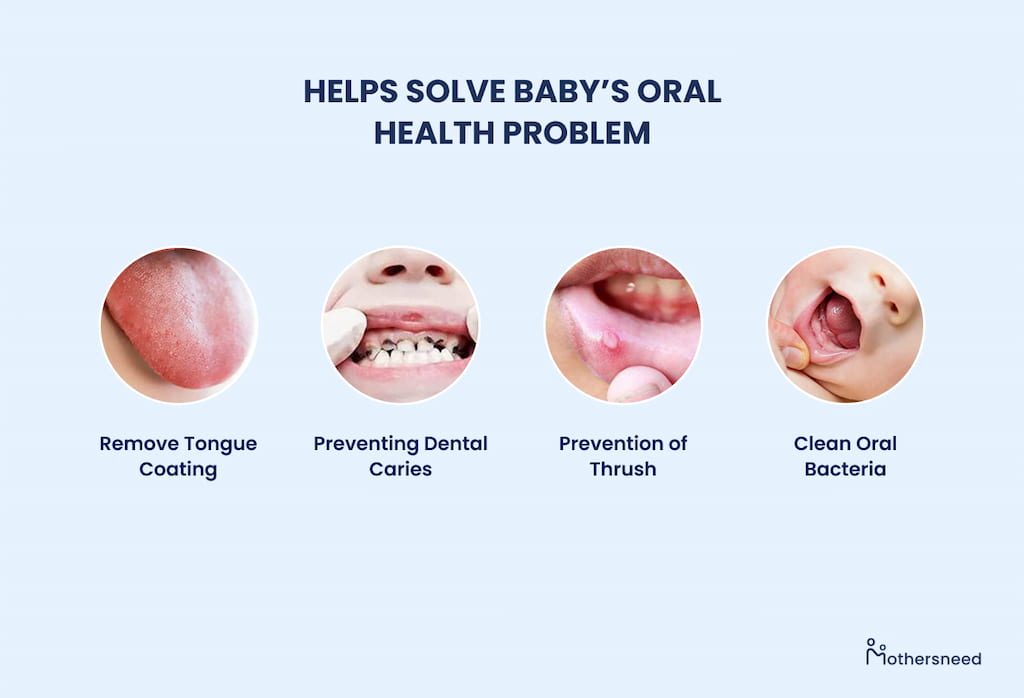
Newborns are susceptible to a variety of oral issues, including thrush, infection, and fungal infections. These issues can cause discomfort and may require treatment to prevent them from spreading.
One of the most common oral issues in newborns is oral thrush, a fungal infection that appears as white patches on the tongue and mouth. It is caused by an overgrowth of yeast in the mouth and can be treated with antifungal medications.
In addition to oral thrush, newborns may also develop other types of infections in the mouth. These infections can cause pain and discomfort and may require antibiotics to treat.
To identify oral issues in newborns, parents should regularly check their baby’s mouth for any signs of white patches or other abnormalities. If an issue is identified, parents should consult with their pediatrician to determine the best course of treatment.
Incorporating Tongue Cleaning into Daily Routine
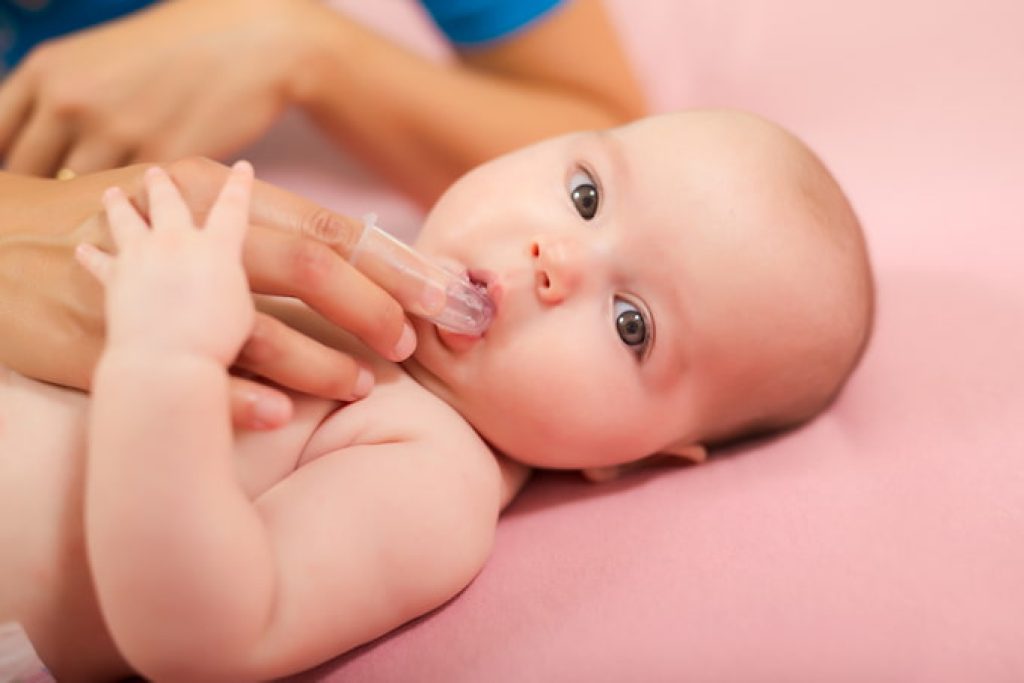
Cleaning a newborn’s tongue can easily be incorporated into their daily routine. Parents can make it a part of their feeding and oral care regimen.
After each feeding, parents can use a clean, damp cloth or gauze to gently wipe their baby’s tongue. This helps to remove any any breast milk, residue or bacteria that may have accumulated on the tongue. It is important to be gentle to avoid causing any discomfort to the baby.
In addition to tongue cleaning, parents can also incorporate tongue massage into their daily routine. This can help stimulate saliva production, which can aid in digestion. Parents can use a clean finger or a soft-bristled toothbrush to gently massage the baby’s tongue in circular motions.
It is important to note that tongue cleaning should not be done immediately after feeding, as it can cause the baby to vomit. It is recommended to wait at least 30 minutes after feeding before cleaning the tongue.
By incorporating tongue cleaning and massage into their daily routine, parents can promote good oral hygiene in their newborns and help prevent oral health issues in the future.
Transitioning to Teeth Cleaning
As the baby grows, their oral hygiene needs change. Once the first teeth appear, it’s time to start brushing them to prevent tooth decay. Here are some tips for transitioning to teeth cleaning:
- Start by using a kid-friendly toothbrush with soft bristles. Choose a toothbrush with a small head that can fit comfortably in the baby’s mouth.
- Use a small smear of fluoride toothpaste (about the size of a grain of rice) on the toothbrush. Fluoride helps prevent tooth decay.
- Brush the baby’s teeth twice a day, preferably after breakfast and before bedtime. Use gentle circular motions to brush the front, back, and top surfaces of the teeth.
- As the baby grows into a toddler, they may want to start brushing their teeth themselves. Encourage them to brush their teeth, but make sure to supervise and help them until they can brush effectively on their own.
- Replace the toothbrush every three to four months or sooner if the bristles become frayed.
By using tooth brushing and starting good oral hygiene habits early, parents can help prevent tooth decay and ensure their child’s teeth stay healthy.
Professional Dental Care for Newborns
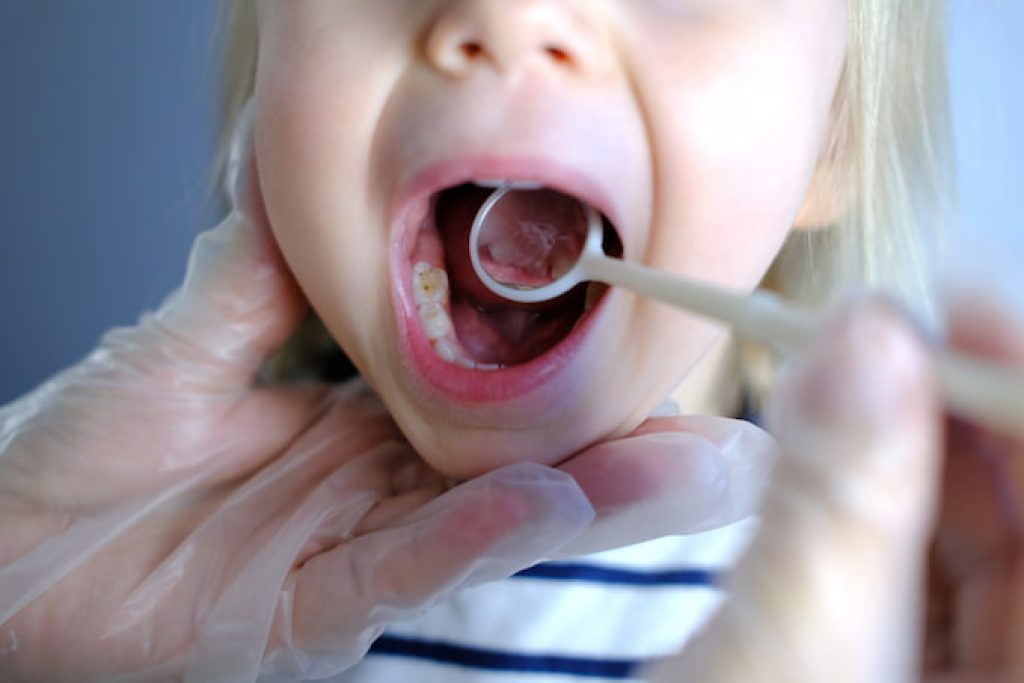
Newborns require dental care just like adults do. Although they don’t have teeth yet, it’s important to clean their gums and tongue regularly to prevent the buildup of bacteria that can lead to oral health problems in the future. Parents can take their newborns to a dentist or pediatric dentist for professional dental care.
A dentist or pediatric dentist can provide expert advice on how to clean a newborn’s tongue and gums. They can also perform a thorough examination of the baby’s mouth to ensure that everything is developing normally. It’s recommended that parents take their child to their first dental appointment by the age of one, or when their first tooth appears.
During a dental visit, the dentist or pediatric dentist will clean the baby’s mouth and provide guidance on how to maintain good oral health. They may also recommend fluoride treatments or other preventative measures to protect the baby’s teeth and gums.
It’s important for parents to establish good dental care habits early on to prevent future oral health problems. This includes cleaning the baby’s mouth regularly, avoiding sugary drinks and foods, and scheduling regular dental visits.
Conclusion
Cleaning a newborn’s tongue is an essential part of their oral hygiene routine. It helps prevent the buildup of bacteria that can cause infections and bad breath. By using a soft, damp cloth or a baby tongue cleaner alone, parents can gently remove any debris or milk residue from their baby’s tongue.
It’s important to note that while tongue cleaning is beneficial, it should not be done too frequently or aggressively. Over-cleaning can cause irritation and discomfort for the baby. Parents should aim to clean their baby’s tongue once a day, preferably after feeding.
In addition to tongue cleaning, parents should also practice good overall oral hygiene for their newborns. This includes wiping their gums with a soft, damp cloth, and eventually introducing a toothbrush and toothpaste as their baby’s teeth begin to emerge.
By following these simple steps, parents can help promote good oral health for their newborns, setting them up for a lifetime of healthy teeth and gums.
Frequently Asked Questions
When can I start cleaning my baby’s tongue?
Parents can start cleaning their baby’s tongue as soon as they are born. It’s important to make sure that the tongue is clean to prevent any potential infections.
Why is my newborn’s tongue white?
A white coating on a newborn baby’s tongue is common and usually harmless. It is caused by a buildup of milk residue, which can be easily removed with regular cleaning.
How do I clean my baby’s tongue if they have thrush?
If your baby has thrush, it’s important to speak to a healthcare professional for advice on treatment. In general, it’s recommended to gently clean the tongue with a soft, damp cloth or gauze to remove any residue.
Are there any safe and effective baby tongue cleaners available?
There are several other baby teeth and tongue cleaners available on the market, but it’s important to choose one that is safe and effective. Look for products that are made from non-toxic materials and have been specifically designed for babies. It’s also recommended to speak to a healthcare professional for advice on which products to use.



